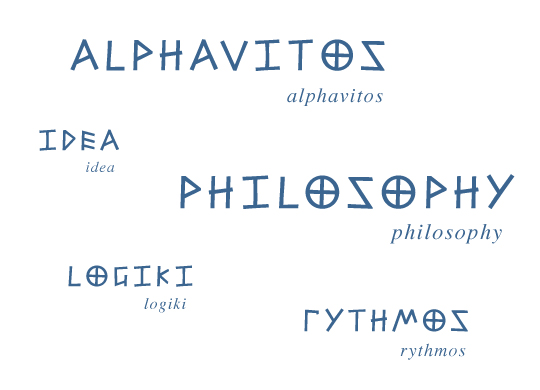

It is therefore essential to master the rules that follow.

The sound change rules below apply to a great number of nouns, adjectives, and verbs. These sound changes are regular enough that they resemble a sort of alphabet math: vowel x + vowel y = vowel sound z. If two vowels came together, they preferred either to pronounce the two vowels together as one sound (called a DIPHTHONG, Greek for “double sound”), or to CONTRACT the two vowels to form either a single long vowel or diphthong (cf. Η ηĪncient Greek speakers tended to avoid pronouncing two different vowel sounds in a row. The long sounds for epsilon and omicron, however, are written with different letters: eta and omega, respectively.

Dont forget to check our other lessons listed on Learn Greek. Notice that the letter forms for alpha, iota, and upsilon are used for both long and short vowels. To have your automatic translation from and into Greek to English simply click on the Translate button below to get the translation you need in Greek dictionary. Like English, Greek has SHORT and LONG versions of its vowels. So we begin our introduction to the Greek alphabet with the vowels. Greek has roughly the same five vowels as English. In English, consonants tend to dominate our words. Consider the verb present (preeZENT) and the noun present (PREsent), which are spelled alike but pronounced differently in English. In Greek, such words would be spelled according to their pronunciations: “preezént” and “prézent.” If a Greek community pronounced “going” as “gonna,” they would spell it as “gonna.” Homophones like “to,” “two,” and “too” would all be spelled the same, even though they have different meanings. It supports 70 languages with word completion and bi-lingual. There is no need to adjust to a particular writing style, learn a special alphabet, or manually switch between character sets or input modes. If the pronunciation of a word changed, so too did the spelling. Recognizes 100 naturally shaped letters in upper and lower cases, numbers and symbols / punctuation. Spell it like it sounds! As we learn the ancient Greek alphabet, it is important to note one essential principle about Greek spelling: ancient Greeks spelled words the way that they were pronounced. Learn Greek phrases and fascinating facts about the language.


 0 kommentar(er)
0 kommentar(er)
